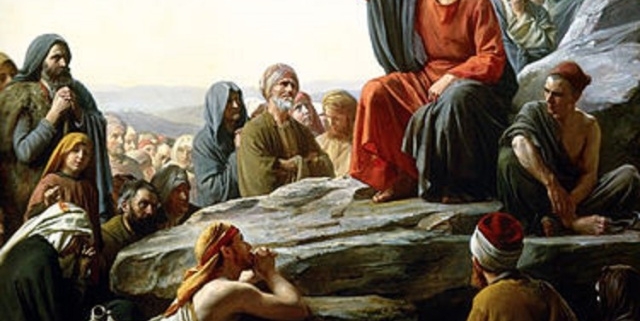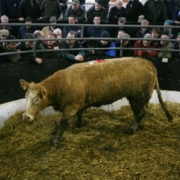Readings, Gospel and Reflection 29.1.23
Fourth Sunday in Ordinary Time
Lectionary: 70
Reading 1
who have observed his law;
seek justice, seek humility;
perhaps you may be sheltered
on the day of the LORD’s anger.But I will leave as a remnant in your midst
a people humble and lowly,
who shall take refuge in the name of the LORD:
the remnant of Israel.
They shall do no wrong
and speak no lies;
nor shall there be found in their mouths
a deceitful tongue;
they shall pasture and couch their flocks
with none to disturb them.
Responsorial Psalm
or:
R. Alleluia.
The LORD keeps faith forever,
secures justice for the oppressed,
gives food to the hungry.
The LORD sets captives free.
R. Blessed are the poor in spirit; the kingdom of heaven is theirs!
or:
R. Alleluia.
The LORD gives sight to the blind;
the LORD raises up those who were bowed down.
The LORD loves the just;
the LORD protects strangers.
R. Blessed are the poor in spirit; the kingdom of heaven is theirs!
or:
R. Alleluia.
The fatherless and the widow the LORD sustains,
but the way of the wicked he thwarts.
The LORD shall reign forever;
your God, O Zion, through all generations. Alleluia.
R. Blessed are the poor in spirit; the kingdom of heaven is theirs!
or:
R. Alleluia.
Reading 2
Not many of you were wise by human standards,
not many were powerful,
not many were of noble birth.
Rather, God chose the foolish of the world to shame the wise,
and God chose the weak of the world to shame the strong,
and God chose the lowly and despised of the world,
those who count for nothing,
to reduce to nothing those who are something,
so that no human being might boast before God.
It is due to him that you are in Christ Jesus,
who became for us wisdom from God,
as well as righteousness, sanctification, and redemption,
so that, as it is written,
“Whoever boasts, should boast in the Lord.”
Alleluia
Rejoice and be glad;
your reward will be great in heaven.
R. Alleluia, alleluia.
Gospel
and after he had sat down, his disciples came to him.
He began to teach them, saying:
“Blessed are the poor in spirit,
for theirs is the kingdom of heaven.
Blessed are they who mourn,
for they will be comforted.
Blessed are the meek,
for they will inherit the land.
Blessed are they who hunger and thirst for righteousness,
for they will be satisfied.
Blessed are the merciful,
for they will be shown mercy.
Blessed are the clean of heart,
for they will see God.
Blessed are the peacemakers,
for they will be called children of God.
Blessed are they who are persecuted for the sake of righteousness,
for theirs is the kingdom of heaven.
Blessed are you when they insult you and persecute you
and utter every kind of evil against you falsely because of me.
Rejoice and be glad,
for your reward will be great in heaven.”
There is a wonderful portrait gallery in London, just around the corner from the National gallery. There you find portraits of all kinds of people going back over several centuries. The art of portraying someone well on canvas is a very special one. If we happen to be familiar with the person who is being portrayed, we instinctively know by looking at the portrait whether or not it is a good one. There is more involved in portraying someone well than representing accurately the physical features of the person. A good portrait artist will always capture something of the spirit of the person.
The beatitudes in today’s gospel reading could be understood as a portrait of a disciple of Jesus. There, Jesus paints a picture of what it means to be his disciple. More fundamentally, the beatitudes are a portrait of Jesus himself, a kind of self-portrait. The beatitudes describe his core attitudes and values. He more than anyone one else is poor in spirit, trusting in God before all else; he is gentle, in that he is firmly committed to God’s purpose, yet without any trace of arrogance; he is the one who mourns because people are not doing what God wants, and who, himself, hungers and thirsts to do God’s will; he is merciful to all who are broken in body and spirit; he is pure in heart in that his heart is not divided but is totally given over to the love of God and the service of all God’s children; he is the peacemaker who seeks by his life and his death to reconcile all people to God and to each other. He is the one who was prepared to be persecuted in the doing God’s will and in the carrying out of God’s purpose.
If the beatitudes are a portrait of Jesus, they are also a portrait of what we are called to become as followers of Jesus. The beatitudes announce that those who live by these attitudes and values of Jesus are blessed because of the future that God has in store for them. When we hear the beatitudes we might be slow to recognize ourselves in the portrait that they present. It would be a pity to look upon the beatitudes as a lofty ideal that Jesus lived to the full but that is far beyond us. When Jesus spoke these beatitudes he was looking at men and women like ourselves, and he was declaring them blessed because, to some extent at least, they fitted the portrait that he was presenting. We should all be able to find a niche for ourselves somewhere among the beatitudes. In the fourth beatitude, for example, Jesus declares blessed those who hunger and thirst for what is right. This beatitude does not declare blessed those who are doing what is right, what God wills as Jesus reveals it. It declares blest those who keep on striving to do what God wants, those who hunger and thirst for it. This beatitude acknowledges that doing what God wants is a goal that always lies ahead of us. What matters is that we never cease to strive forward towards that goal, that we do not allow ourselves to become complacent. We do not give up the struggle to reach for what God is calling us towards. In the words of St. Paul’s letter to the Philippians, we ‘strain forward to what lies ahead’, we ‘press on towards the goal’. Even though we repeatedly fall short, as long as we earnestly seek to do what God is asking of us, and keep alive our desire to respond to God’s call as it comes to us through God’s Son, we are declared blessed, we are congratulated.
The previous beatitude, the third one, refers to those who mourn. Those who hunger and thirst for what is right will invariably be people who mourn, in the sense that they will be aware how far they have yet to go, and that will sadden them. Commentators on the beatitudes say that ‘those who mourn’ are best understood as those who are painfully aware that God’s kingdom has not yet come in their own lives or in the society that they inhabit. In other words, they mourn over the presence of sin and evil in themselves and in others. ‘Mourning’ in that sense is the evitable accompaniment of hungering and thirsting for what is right, while knowing that our hunger and thirst is far from being satisfied. The ‘mourning’ mentioned in the beatitudes is akin to the weeping of Jesus because the people of Jerusalem did not recognize Jesus’
From Fr. Martins Daily Reflections
PRAYER:-
Lord of perfection, You call me to journey with You up the high mountain of holiness. May I always see this journey as one that is glorious and fulfilling. I choose the life of perfection to which I am called and pray that I will always be open to the deepest moral truths You wish me to live. Jesus, I trust in You!


 William G. Henry & Co., Solicitors
William G. Henry & Co., Solicitors Stewart Fuel Oils, Boyle
Stewart Fuel Oils, Boyle








